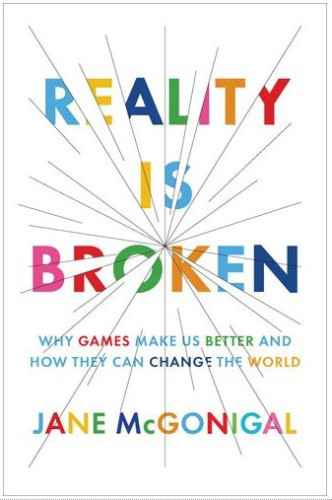
Reality Is Broken
Why Games Make Us Better and How They Can Change the World
کتاب های مرتبط
- اطلاعات
- نقد و بررسی
- دیدگاه کاربران
نقد و بررسی

Starred review from November 22, 2010
As addictive as Tetris, McGonigal's penetrating, entertaining look into gaming culture is a vibrant mix of technology, psychology, and sociology, told with the vision of a futurist and the deft touch of a storyteller. For the nearly 183 million Americans who will spend an average of 13 hours a week playing games, McGonigal's book is a welcome validation of their pursuits. But for those who don't understand, or who may worry that our growing preoccupation with games is detrimental to society and culture, McGonigal argues persuasively that games are in fact improving us. "Game design isn't just technological craft," she argues, "it's a 21st Century way of thinking and leading." And games, she argues, particularly the new wave of Alternative Reality Games, are not about escapism but a powerful new form of collaboration and community building. The book moves effortlessly from Herodotus to Halo, stitching together an intellectually stimulating view of human culture past, present, and future. And while not downplaying the potential for negative consequences, such as "gamer addiction," McGonigal makes an inspiring case for the way games can both enhance our personal happiness and help society.

December 1, 2010
People who spend hours playing video or online games are often maligned for wasting their time or not living in the real world, but McGonigal argues persuasively and passionately against this notion in her eminently effective examination of why games are important. She begins by disabusing the reader of some inherent prejudices and assumptions made about gamers, such as that theyre lazy and unambitious. Quite the opposite: McGonigal finds that gamers are working hard to achieve goals within the world of whatever game they are playing, whether its going on a quest to win attributes to enhance their in-game characters or performing tasks to get to a higher level in the game. Games inspire hard work, the setting of ambitious goals, learning from and even enjoying failure, and coming together with others for a common goal. McGonigal points out many real-world applications, including encouraging students to seek out secret assignments, setting up household chores as a challenge, even a 2009 game created by The Guardian to help uncover the excessive expenses of members of Parliament. With so many people playing games, this comprehensive, engaging study is an essential read.(Reprinted with permission of Booklist, copyright 2010, American Library Association.)

























دیدگاه کاربران